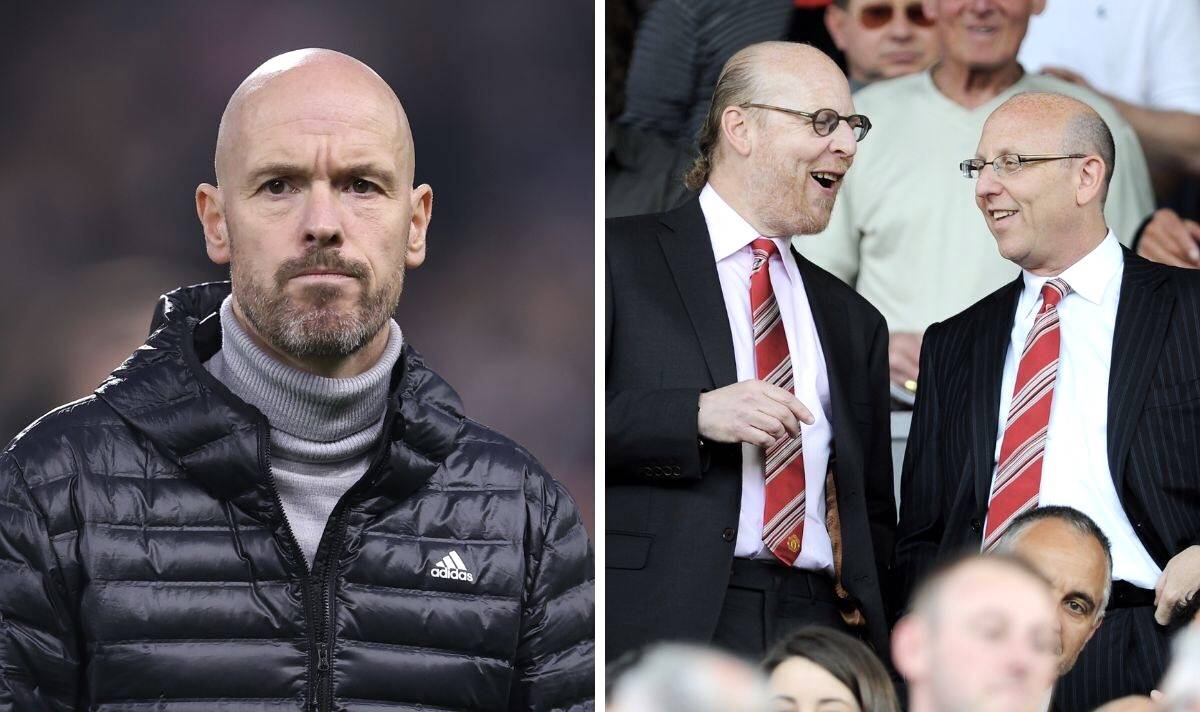Why Man United can't spend big in the summer transfer window: Crippling debt, poor sales and more
In his second summer window as manager of Manchester United, Erik ten Hag has approximately £120 million available to spend on new players. United's primary targets for this transfer window are a goalkeeper and a striker. However, they have already utilized half of their budget by acquiring Mason Mount from Chelsea for a hefty £60 million. The club's financial situation is further complicated by an ongoing takeover saga, with Qatar's Sheikh Jassim and Ineos chief Sir Jim Ratcliffe vying to purchase the club from the unpopular Glazer family for a staggering £6 billion.
To comprehend why Manchester United does not possess a larger transfer budget, it is essential to consult football finance expert Kieran Maguire. Various reports during the summer have indicated that United's ability to make significant signings is limited due to issues related to Financial Fair Play, now known as Profitability and Sustainability (P&S). According to the current Premier League regulations, clubs are permitted to incur a maximum loss of £15 million over a rolling three-year period. However, owners can augment this limit by injecting an additional £90 million through shares, thereby increasing the total P&S loss threshold to £105 million.
Manchester United encounters a predicament in this regard, as being a publicly listed company on the New York Stock Exchange (NYSE), it is both arduous and costly to issue fresh shares. At present, the club has approximately 160 million shares in circulation, with the Glazer family possessing around 69 percent of these shares. Since acquiring Manchester United in 2005, the Glazers initially relied on borrowing money from banks. When the club was listed on the NYSE in 2012, the funds raised primarily originated from external investors. The Glazer family has not injected any equity investment into the club themselves, necessitating adherence to the £15 million loss limit.
Throughout its history, Manchester United has been highly competitive in terms of wage expenditure, which represents the primary cost in football. In the 2021-22 season, the club's wage bill amounted to £384 million, the highest in the Premier League, despite not having to pay any bonuses for winning trophies or qualifying for the UEFA Champions League. In the following season, the wage bill is expected to decrease due to contractual clauses that reduce player salaries if the club fails to qualify for the Champions League and the departure of Cristiano Ronaldo.
Determining the actual calculation of P&S losses is a complex process. Adjustments must be made to account for COVID-19-related factors such as the loss of matchday income, broadcast rebates, and increased costs associated with health protocols and lockdown restrictions. Additionally, expenses related to infrastructure, the women's team, academy, and community activities are excluded from the loss calculations. Manchester United's operating losses for the 2021-22 season amounted to a modest £37 million, lower than several other Premier League clubs, including Chelsea, whose operating losses were over three times the amount incurred by United.
Operating losses can be offset by profits from player sales, an area where Manchester United has notably underperformed compared to their counterparts in the 'Super League Six.' According to audited accounts of all the clubs, United has generated only £133 million in player sale profits since the retirement of Sir Alex Ferguson in 2013. This figure is over £500 million less than Chelsea, who have earned substantial profits from selling players like Eden Hazard. Chelsea has also leveraged their academy to generate significant financial gains through the sales of players such as Tammy Abraham, Mark Guehi, and Fikayo Tomori. Remarkably, Chelsea's player sale profits over the past decade have exceeded the revenue generated from ticket sales at Stamford Bridge.
Manchester United's Chief Executive, Richard Arnold, has implemented a 'No d********' policy in player recruitment, aiming to improve the quality of signings



No comments yet
Be the first to share your thoughts!